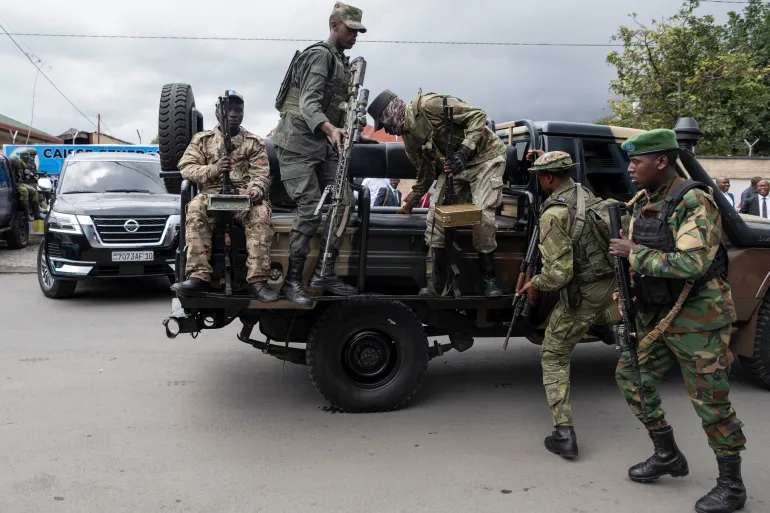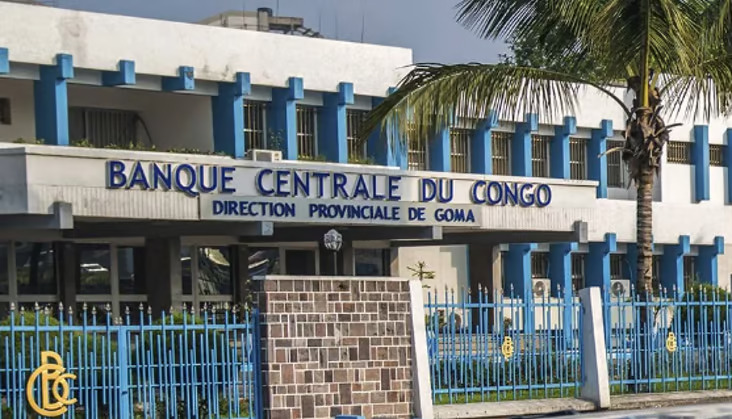Amid an escalating conflict in eastern Congo, the M23 rebel group is tightening its grip not just militarily but economically, imposing a heavy financial burden on residents and businesses.
With most banks shut and cash hard to come by, the group has introduced a sweeping tax regime in territories under its control, forcing locals into deeper financial hardship.
In areas like Rubaya, a key mining town in North Kivu province, rebels have begun collecting a 15% tax on coltan, a vital mineral used in smartphones and other electronics. Rubaya alone contributes about one-sixth of the global supply of coltan. Rebel officials and traders confirmed the new tax rate, adding that other levies are being introduced as well.
Private enterprises and humanitarian organizations are receiving tax invoices. Even informal vendors selling basic necessities must now pay up to 20% in levies. “Customers don’t come anymore,” said Rachelle Monimpo, a cloth seller at a market in Goma. “It’s becoming very complicated for us to get the money to pay this tax.”
The current crisis comes as M23 launches a major offensive, displacing hundreds of thousands and taking control of new territories over the past four months. The years-long conflict has already displaced over 4 million people and involved several armed groups and foreign militaries.
During the day, Goma and Bukavu bustle with life. Motorcycle taxis zigzag through crowds, and shops stay open. Border crossings with Rwanda are heavily trafficked as residents cross to access goods and cash. But by nightfall, the streets empty out. Rebel patrols dominate the scene, along with remnants of pro-government militias.

Congo’s Economy Crumbles Under Occupation
Analysts argue that military dominance is not enough. “If the group fails to shore up the economy and restore essential services,” said Zaynab Hoosen, a senior analyst at Pangea-Risk, “it risks eroding local support and undermining its claims to legitimate governance.”
Congo’s central bank, under pressure from the government in Kinshasa, has kept all banks in rebel-held zones closed. On February 28, gunmen unsuccessfully attempted to break into the central bank branch in Goma, according to three sources. M23 troops were later seen stationed outside the building in videos circulated online.
Both Congolese francs and U.S. dollars are in short supply. Though Kinshasa still pays public workers like teachers and doctors in these regions, they struggle to access their funds. Mobile money fees are exorbitant — up to 6% in some cases. Some residents travel as far as Butembo, a government-controlled city over 1,000 kilometers away, to access banking services via Uganda.
Despite this, M23 announced in April the reopening of state-owned CADECO bank branches in Goma and Bukavu.
“Open bank accounts. Launch and relaunch your activities. Dream again. Because this bank is yours.”
M23
But financial experts and officials say this is merely symbolic. The reopened branches are isolated from the national financial system and unable to supply fresh cash. Some local traders admitted they paid taxes at CADECO branches but were unsure about the legitimacy of further transactions.
Congo’s Deputy Minister for the Economy, Daniel Mukoko Samba, emphasized during a press conference that reopening banks in rebel-held zones would “only serve to legitimize M23’s land grab.”
“People in this part of the country are not suffering because of the government but because of the occupation.”
Daniel Mukoko Samba
He also warned that CADECO had been on shaky financial ground even before M23’s invasion, describing it as technically insolvent and incapable of guaranteeing customer deposits.
As such, the M23 rebels’ financial maneuvers reveal a deeper strategy to legitimize their control, but ongoing economic hardship and institutional collapse threaten to undermine both governance and public trust.
READ ALSO: A-Plus Denies Corruption Allegations against AG, Apologise




















